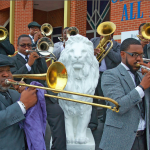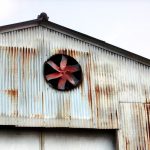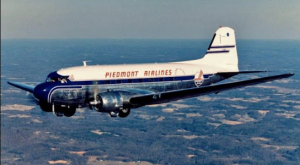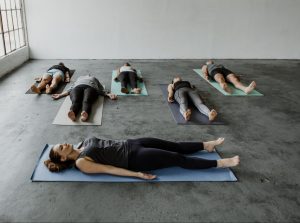
Life on Earth
This story by Jim Dodson originally appeared in O.Henry magazine in March 2017.
Sunday morning in the kitchen, two hours before sunrise.
A deep silence fills the house. At this hour, I often hear a still, small voice that possibly belongs to the Almighty but – more often than not — is just Boo Radley the cat demanding to be let in and fed after his nighttime prowl through the neighborhood.
I am a butler to a roaming tomcat.
On the plus side, though, when I step outside, Sunday morning still lies like a starry quilt over the world, with a thin quarter moon hanging on the western horizon like a theatrical prop in a school play. Somewhere, miles away, a train rumbles by, reminder of a world that is always going somewhere without me. Happily, I am going nowhere except the end of the driveway to fetch the morning newspaper I probably won’t get to for days, a Sunday man beneath a gorgeous hooked moon. As I pick it up, the first bird raises its voice, a beautiful threnody to fellow early-risers. Within minutes, birdsong emanates across the neighborhood.
Back inside, I sit for a spell with my first coffee, putting the Sunday paper aside to read my Sunday Essentials, favorite books that run the gamut from the sonnets of Shakespeare to the essays of Wendell Berry, with a dash of Billy Collins and Mary Oliver for proper spiritual seasoning.
This particular Sunday is a book long out of print, a memoir of spiritual rejuvenation first published the year I was born, the story of a successful big-city writer who was forced by reasons of health and age to return to the small Wisconsin town of his birth. There he built a big house on family land but initially struggled to find his place on ancestral earth.
“A man, faced with the peculiar loneliness of where he doesn’t want to be,” writes Edward Harris Heth in My Life on Earth, “is apt to find himself driving along the narrow, twisting country roads, day or night, alone, brooding about the tricks life can play.”
Life, he discovers, is lived by degrees and open eyes. Little by little, the author’s lonely drives yield a remarkable transformation of the angry city man. Heth gets to know – and admire — the eccentric carpenter who is building his house, fussing over every detail, and the astrologer who picks and prunes her apple orchard by the light of the moon.
He drops by a church supper and meets his neighbors, including the quirky Litten sisters “who play a mean game of canasta and have an Old Testament talent for disaster.” The ancient Litten girls both feed and inspire Heth to broader exploration.
His closest neighbor, Bud Devere, is a genial young farmer who always shows up uninvited just to chat about the most mundane topics – weather, farm prices, a new hat — boring the author to tears, though it is he who invites the author for a drive along Willow Road.
“I did not want to see what Bud saw. But the reluctance began fading away in me that first time we went down the Willow Road. It covers scarcely more than a mile, but in that mile you can cover a thousand miles.” Along it the author sees spring wildflowers in bloom, undisturbed forests, a charming farmhouse riotous with narcissus and hyacinth. He feels his own pulse begin to slow down and something akin to pleasure take root.
“Bud kept silent. He wanted me to open my own eyes…Since then, I’ve learned how many country people know and enjoy this art of the small scene and event, the birth of a calf, a remembered spot, the tumultuous labor and excitement of feeding the threshers, who come like locusts and swarm for a day over your farm and disappear again at night, the annual Welsh singing competition in the village – these are the great and proper events of a lifetime.”
Funny thing is, I haven’t the foggiest idea how this gem of a little book came into my possession, a surprise bestseller when it first appeared in 1953. But somehow it got on my book shelf and found its way into my soul.
Now the sun is up and so are the dogs. I am a butler to them, too. They eat like hounds after the chase, gulping their food in anticipation of the early morning walk.
The neighborhood is old, with massive hardwoods that soar like cathedral arches overhead. When the light of dawn or end of day reaches them, no manmade structure on earth can rival their majesty. Down the block, a man in his bathrobe steps out and shuffles hurriedly to the end of his sidewalk to fetch his Sunday morning paper. He gives a perfunctory wave, bobs his head and hurries back inside with a gentle slam of the door, eager to read what calamities have fallen overnight.
The news of the world can wait. For it never really changes, a story as old as cabbages and kings. Besides, we are briefly off the clock on Sundays, free to wander as we please and footloose upon the earth, not taking phone calls, officially out of range, in search of a more private divinity.
Truthfully, I sometimes feel the heaviness of midsummer. I am a winter’s boy, you see, though my wife is an endless summer girl who dreams of white lilacs in bloom.
“What is divinity?” asked Wallace Steven in his poem Sunday Morning,
“If it can come only in silent shadows and in dreams?
Shall she not find in comforts of the sun,
In pungent fruit and bright, green wings, or else
In any balm or beauty of the earth,
Things to be cherished like the thought of heaven?
Divinity must live within herself:
Passions of rain, or moods in falling snow;
Grievings in loneliness, or unsubdued
Elations when the forest blooms; gusty
Emotions on wet roads on autumn nights;
All pleasures and all pains, remembering
The bough of summer and the winter branch.
These are the measures destined for her soul.”
By the time Lady Summer Bough and Lord Winter Branch reach the park, the strengthening sun has filled the trees with even more birdsong. Across the way stands the site of a spectacular ancient oak I must have peddled by a half a million times as a kid on his way to the ball field; it looked like a lighted candelabra, a sentinel of the passing seasons limned with golden light at the edges of the day.
Sad how I needed to live sixty summers before I noticed what a magnificent creature it was.
Only deepening the grief I felt upon discovering that the city, for no clear reason, cut it down.
It is middle Sunday morning at church, our usual pew, back right. The young preacher is named Greg. Not long ago we attended his ordination as a priest. My cheeky wife thinks Greg is almost too good looking to be a priest. Lots of women in the parish seem to share this view.
The gist of his Sunday sermon is the need to look with fresh eyes upon Matthew’s Beatitudes. But the true strength of his Sunday morning message lies in the suggestion that we all should aspire to become our truest selves and possibly Christian mystics. “Don’t be scared by that word mystic,” he urges. “It simply means someone who has gone from an intellectual belief system to actual inner experience.” The journey from head to the heart, he says, means we are all called to be mystics.
Back home, Sunday afternoon passes quietly in the garden, pulling weeds and praying for rain. Having pulled down an old pergola and cleaned out a handsome brick planter long overgrown by English ivy, I lose complete track of time transplanting Blue Angel hostas and a pair of broadleaf hydrangeas, repairing a much-loved birdfeeder, hanging anniversary chimes high in an ancient white oak and watering the ostrich ferns. If one is closer to God’s heart in a garden, then perhaps I am a backyard mystic with dirty hands after all.
By Sunday sundown, my knees are aching but the healing is real. Renewed for a week of cabbages and kings, we settle down for a quiet supper and to catch our current British import on Netflix before bed, though I tend to doze off half way through the program, still thinking about the mystery book that found its way to me.
Happy to report that Edward Heth finally found his place on earth. It took a new neighbor named Jane who relocated from Chicago to the country, a widowed city woman who learned to see the simple pleasures of life in the slow lanes through his eyes. They decide to marry. “Then, in time,” he writes, “our last days together will be as rich as our youth. We can do helpful things, quiet a fear, sustain an illusion, sit by each other’s sickbeds, hunt each other’s lost cows. And what more can any man ask than to know he will not die alone?”
Sunday ends as Boo Radley goes out for another night on the town and the dogs follow us to bed. For some reason I can’t quite explain, I seem to sleep so well on Sunday nights.





